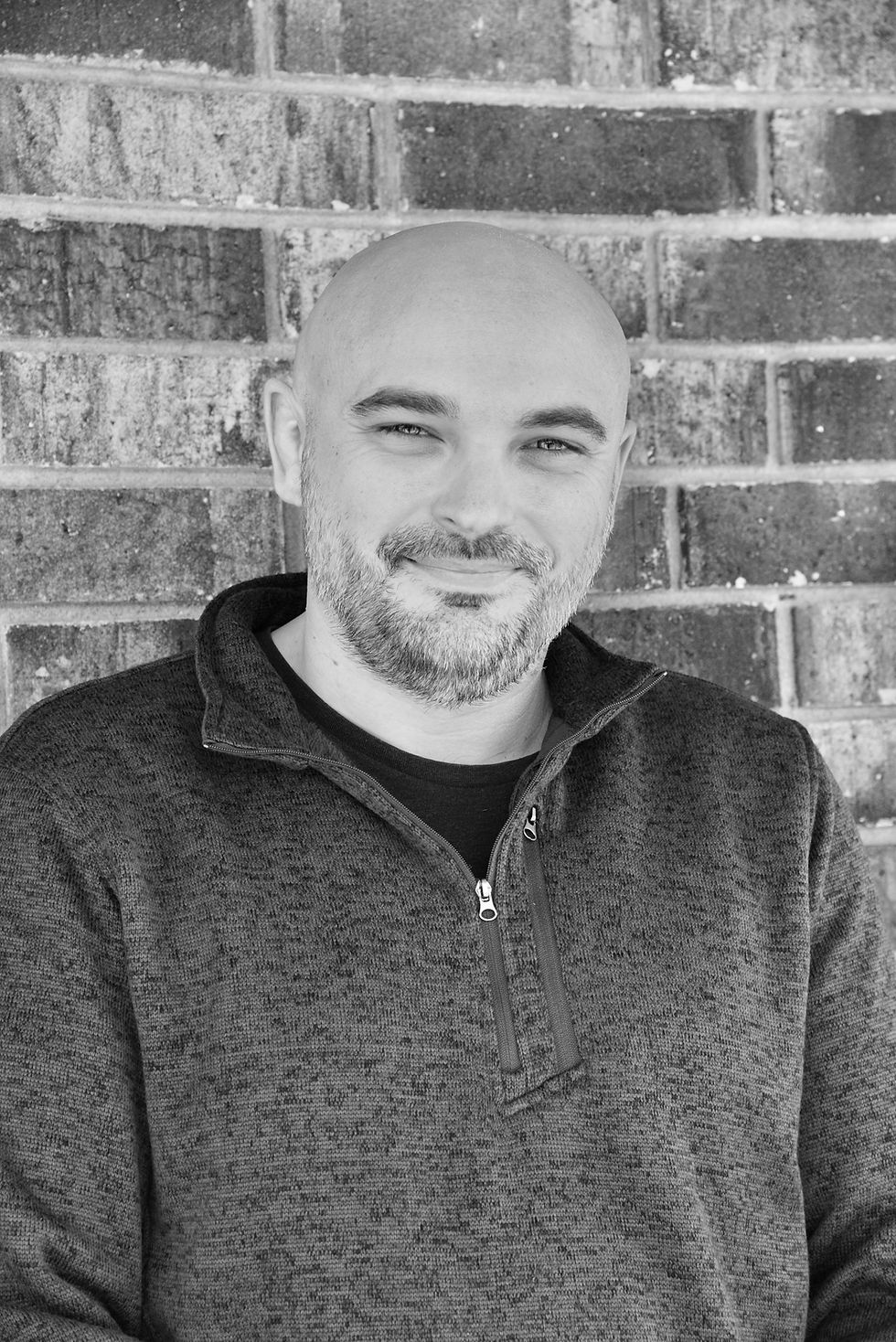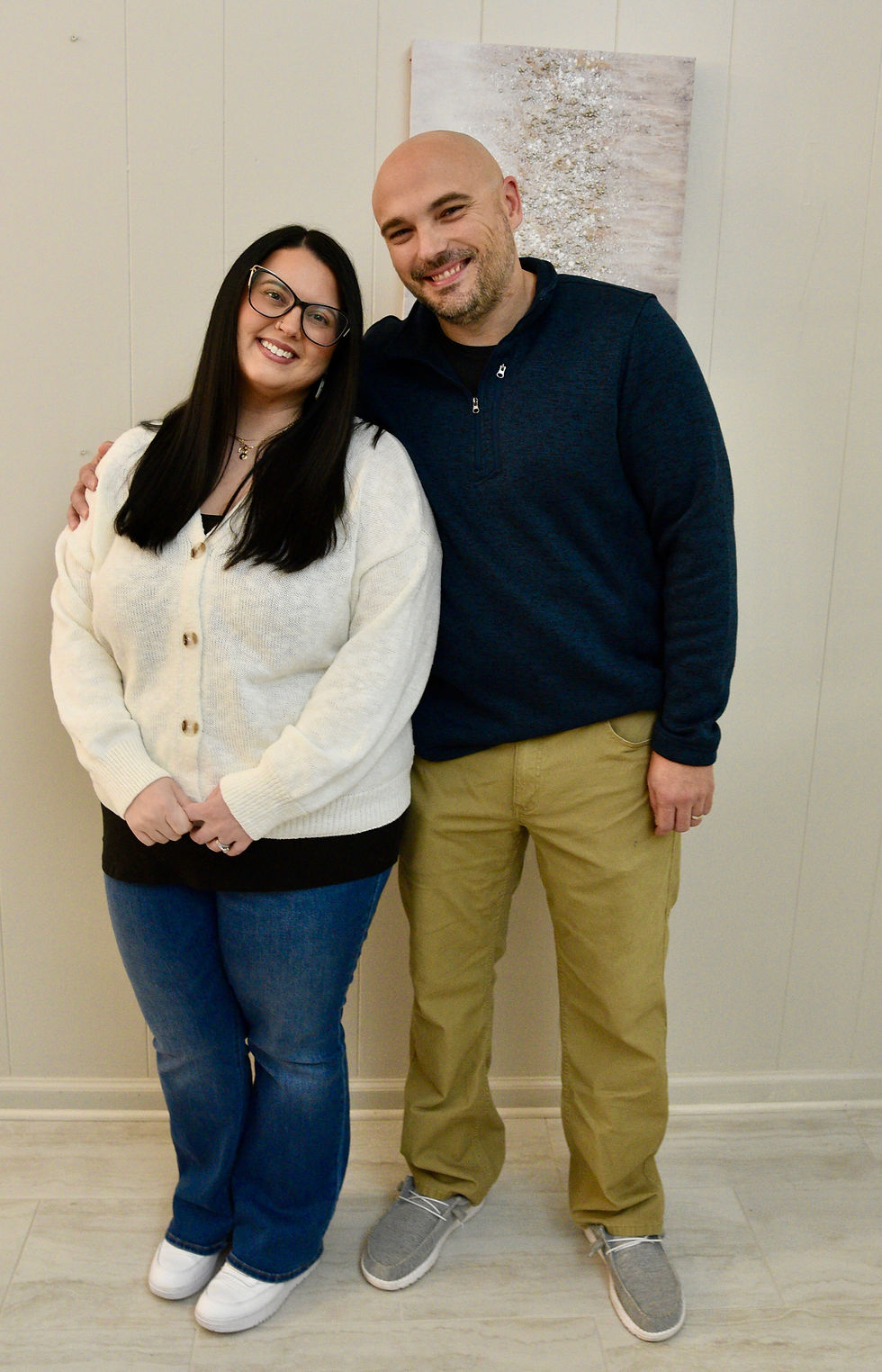Recognizing Corporal Matt Easley
- searcylivingads
- Feb 5, 2025
- 4 min read
By Jennifer Webb
Photos by Searcy Living Photography

Matt Easley hung up the phone as a thrill shot through him. His dream job at the Searcy Police Department had openings! He loved his patrol job at the Newport police department, but the hours left him little time to spend with his wife, Breanne,
and their newborn twin girls.
He went to work for the Newport Police Department in 2013 after graduating from ASU with his Bachelor of Arts in Criminology and had been there for 4 years. But lately, stress had been getting to him and it was time for a change. With the new additions to his family, the timing was perfect.
He had always wanted to work at the Searcy Police Department. He was already very familiar with Searcy, having worked in town since he was 16. He started in December 2017 with 12-hour shifts that allowed him to spend more time with his family. He stopped worrying about promotions and shifted his focus to what he needed to do to be the best officer possible.
“Searcy is a very community-oriented Police department.”
- Cpl. Matt Easley
The job became fun again. He started going to training and soaking up the knowledge like a sponge. Each new thing he learned gave him a different perspective and helped him to be a better officer. Most years, he logs over 100 hours in continuing education and has been a training officer for over four years.
When his girls were around four, one of his twins had just been diagnosed with autism. It shifted how he and Breanne viewed the world as they learned what strategies to use to nurture and educate her. She always wanted to know why before she complied with directions.
Both of his grandparents had been diagnosed with dementia. What might happen in a different situation if one of them was not in a nursing home, but instead out wandering the streets and a police officer started demanding answers to questions they were currently incapable of answering? Could the situation potentially escalate or would it be better to slow down and take time? What about someone with autism, that has to know why before they comply with directions?
He knew from his time on the small police force at Newport that it was way easier to talk someone into handcuffs than to restrain them by force. Was there a better way to respond to people who react differently? Talking people down and intervening in crisis situations could lead to people getting life-changing help and escaping the cycle of going in and out of jail.
It also fit with the basics of his jujutsu training - restraining someone with the least amount of force without hurting them. Talking people down was the least possible amount of force.
“If you can talk someone into handcuffs instead of having to fight or chase them, it’s a lot easier on everybody and they are a lot more likely to talk to you later on. If you tase people or throw them down they are not very fond of talking to you.”
-Cpl. Matt Easley
He took his training out on patrol and the more he approached being a patrol officer with compassion, listening, and respect, the more positive results he saw. For example, if he had to arrest someone at a business his approach had a drastic impact on how it went and the willingness of the people to interact with him again. He could go in, abruptly serve the arrest warrant, haul the subject out the front door, and put them in his police car. Or, he could discreetly walk in, talk to the suspect, tell him he was there to serve the arrest warrant, explain the situation to their boss, then peacefully put handcuffs on and discreetly walk them out the back door.
His approach had a huge impact on the suspect’s willingness and cooperation. He also started building a positive relationship with the suspect and the business owner.
In one scenario, the suspect likely ends up fired. In the other, the suspect may end up promoted when showing maturity, responsibility, and dignity in dealing with the arrest warrant.
Cpl. Easley is now certified to teach crisis intervention and de-escalation. He was also instrumental in starting the Searcy Police Department crisis negotiation team, which springs into action in hostage situations or a threat to human life.
A new crisis intervention team is in the works for the near future. Crisis intervention addresses mental health or behavioral crises. A team is currently undergoing training and Cpl. Easley and Sgt. Tillett will be instructors for training in this area of the state with the Arkansas Academy.
Though he has held the rank of corporal for some time, Cpl. Easley recently moved from patrol to criminal investigation squad. He is excited to rise to the challenges of learning to approach his job from a detective’s perspective. He greets each challenge as an opportunity to better himself and to become the best officer he can be.
In his home life, his twin girls are rapidly growing elementary students and he gives himself wholly to being Dad to them and husband to Breanne. He likes to unwind with fishing, with competitive ju-jitsu training, and relaxing with his family.
In the summer, they can often be found swimming both at the Searcy Swim Center and in the lake at Heber. The girls are fascinated by aquariums, so they make it a point to put an aquarium on their vacation lists when possible. They often visit one of Searcy’s many parks or take turns singing on their karaoke machine at home.
For Cpl. Matt Easley, it’s time well spent. They are his ultimate reason for doing everything he does to help keep the City of Searcy safe.

“He greets each challenge as an opportunity to better himself and to become the best officer he can be.”
Read the full issue below.


